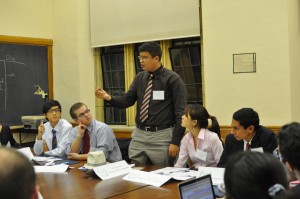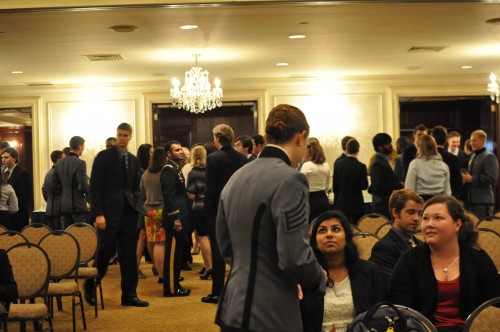The thirty-fourth annual session of the Security Council Simulation at Yale (SCSY) is under way! According to Secretary-General Mimi Wu, to say that this year’s SCSY will provide an incomparable delegate experience is no understatement. The SCSY team will raise the bar in providing a conference that is not only of the highest quality and level of professionalism, but also dedicated to having creative committees, novel topics, and fast-paced, innovative crises.
The result is a Model United Nations Conference unlike any other. SCSY’s small and crisis based committees provide delegates with a unique environment to collaborate and devise creative solutions to complex contemporary and historical issues. We have a photoblog of how that result has looked like so far! You can also follow SCSY through their own social media including their Flickr, Twitter, and Facebook.
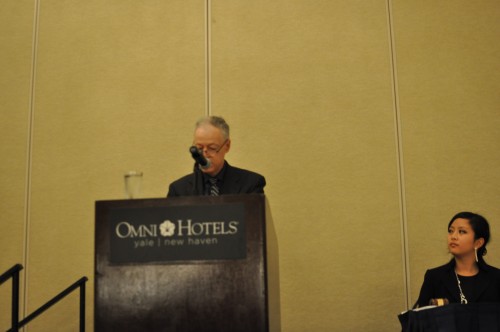
Reuters journalist Alan Elsner delivers an entertaining opening keynote by drawing from his experiences in the field as a journalist. Head Delegates remarked that he was a great speaker.
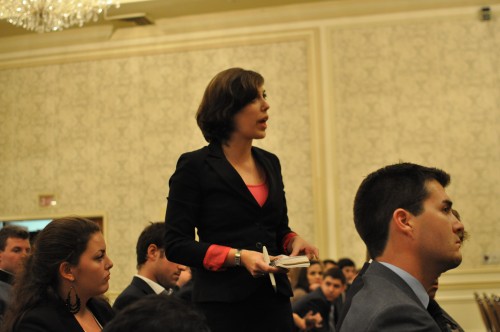
A delegate from Vrije University of Amsterdam asks the keynote speaker about the effectiveness of the UN, to which he replied by citing failures in Bosnia and Rwanda.
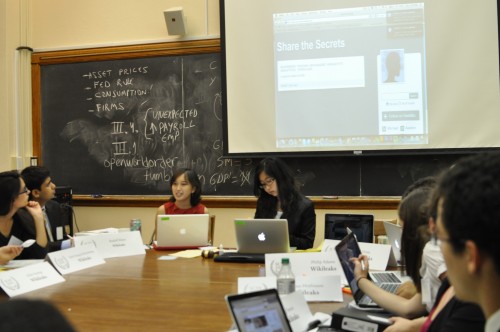
The Wikileaks committee delivers its messages and hidden clues to the committee online through scsy-wikileaks.tumblr.com and share-the-secrets.tumblr.com
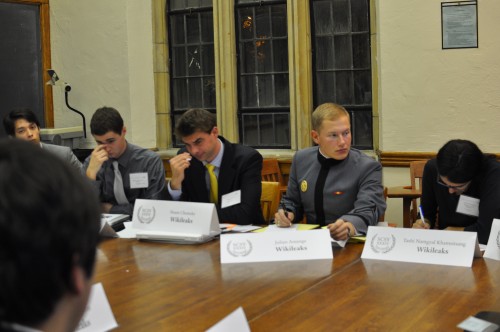
Delegates in the Wikileaks committee looked to be thinking hard as they try to figure out clues from anonymous sources
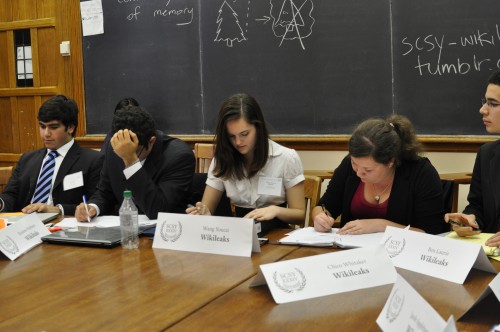
Wikileaks committee: one delegate (girl in white shirt) was able to solve a puzzle given to the committee, but all heads go down now that the committee has to decipher the message.
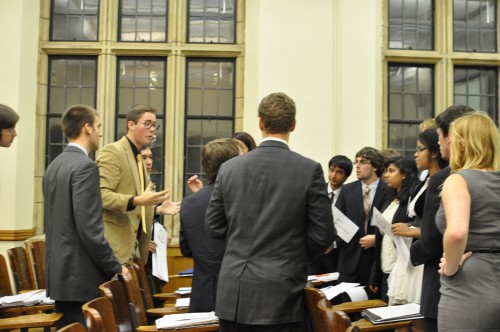
Peloponnesian War joint crisis: the Athens cabinet was divided into a larger senate at home and a group of five generals that fight away from home. Here the delegates remaining in the larger senate deliberate on issues.
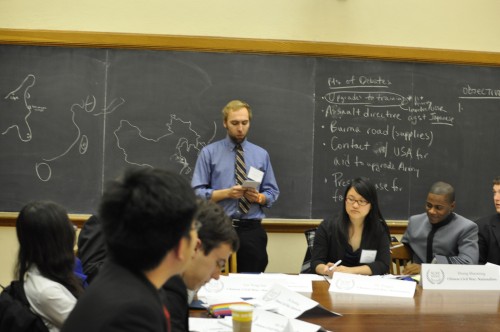
Chinese Civil War joint crisis: A delegate in the Nationalists read off demands given by the Communist Party on how post-Japanese occupied China should look like.
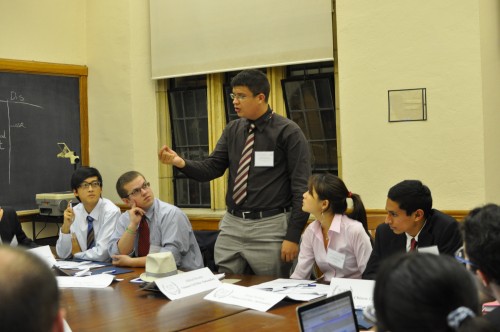
Chinese Civil War joint crisis: Consequently, a delegate in the Nationalists is angry at those demands and believes that they should not compromise so much to the Communists.
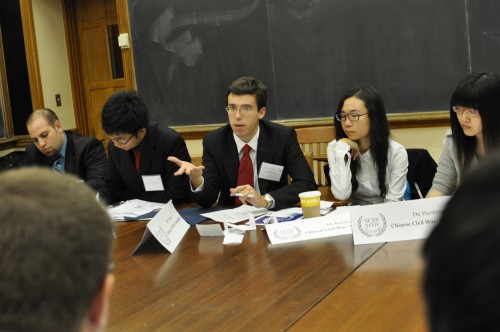
Chinese Civil War joint crisis: A delegate in the Nationalist Party tries to come up with the next course of action based off the Communist Party demands
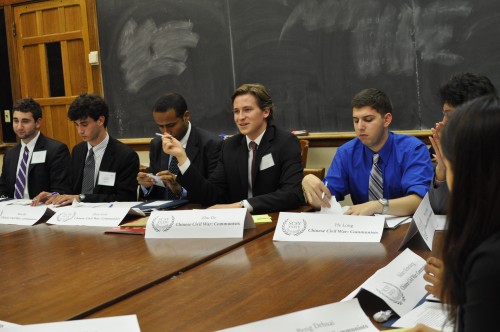
Chinese Civil War joint crisis: a delegate in the Communist Party speaks with his comrades during moderated caucus
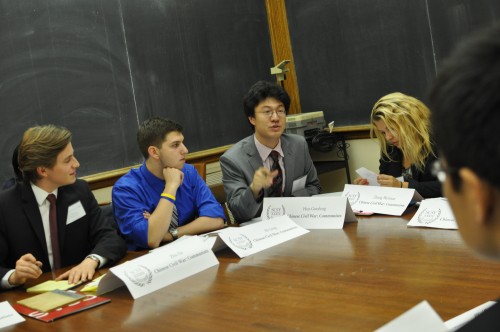
Chinese Civil War joint crisis: a delegate in the Communist Party makes his point during a moderated caucus
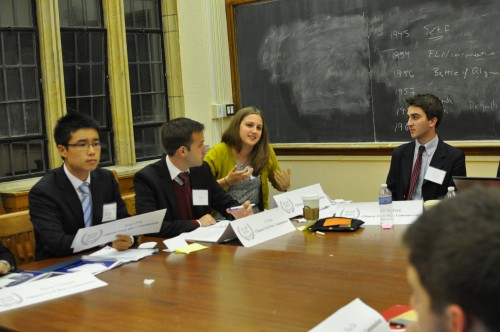
Chinese Civil War joint crisis: A delegate in the Communist Party proposes a more diplomatic solution after a round of heated debate concluded after the Communist Party propaganda had been intercepted by the Nationalists
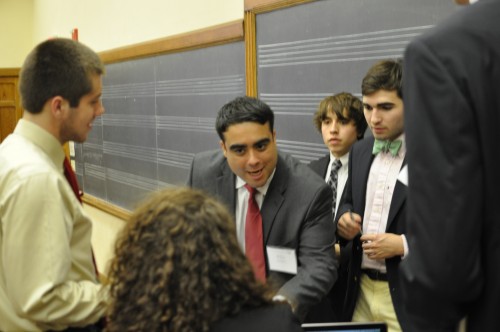
Delegates representing surviving tribes of cities have to negotiate for their survival in the After the End committee.
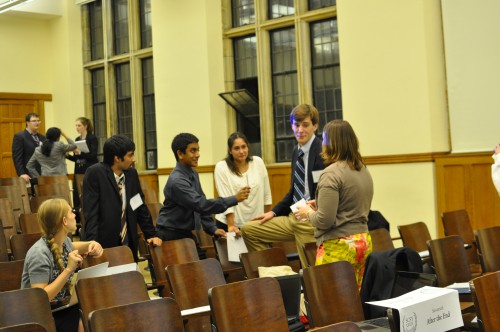
After the End: Delegates form factions rather than go at it alone as expected -- and use these alliances to attack other factions for resources

